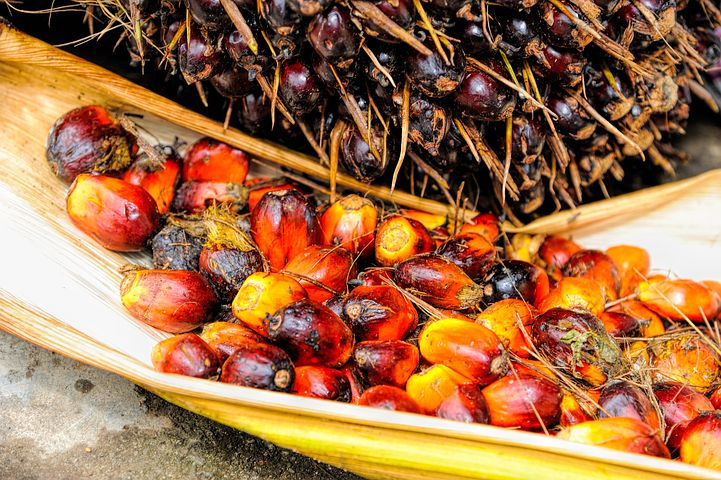Palm oil companies face huge challenges in making good their guarantees that production of their widely-used vegetable oil will not involve deforestation.
The main challenge is that palm oil supply chains are highly complex “social systems,” say researchers from Imperial College London, who have recently completed a study of the subject.

In a paper on their work in the journal Global Environmental Change, they also list other barriers that must be overcome.
These include: “lack of consensus” on what is meant by deforestation; “inadequate support” from governments; and robust demand from China and India that favours low-cost to sustainably-produced palm oil.
“Deforestation-free palm oil is possible,” states lead author Joss Lyons-White, who is a postgraduate researcher in the Department of Life Sciences at Imperial, “but our study found it is very challenging for companies to guarantee at present.”
Complex supply chains
The supply chains involved in producing palm oil are highly complex, making it very difficult to trace the product back to the plantation that grew the palm trees that bear the oil-rich fruit, he explains.
The term supply chain is the whole process of creating, marketing, distributing, and selling a commercial product. It includes every stage, from acquiring raw materials to delivering the item to the end user (ultimate consumer).
A widely-used vegetable oil
Palm oil comes from the fruit of the oil palm tree, Elaeis guineensis, which only grows in the tropics.
The tree is a native of West Africa, where it was once grown as a subsistence crop for medicine, fibre, and food in small agricultural systems.
Today, palm oil is most valued for the fact that it can be separated into lots of different oils with distinct properties. Approximately half of the products on supermarket shelves contain palm oil.
It is used as a cooking oil, industrial lubricant, and biofuel. It is also a key ingredient in ice cream, confectionery, ready meals, cosmetics, soaps, detergents, polishes, and waxes.
Steady growth in global demand for vegetable oils over the last 50 years has led to large-scale cultivation of palm oil in many parts of the world, especially Malaysia and Indonesia.
At the start of the millennium, more than half of the 9.7 million hectares devoted to oil palm tree plantations on this planet were in these two countries.
Environmental impact and deforestation
Unfortunately, this growth has come at a cost because of its environmental impact.
During 1990-2005, some 2.7 million hectares of tropical forest were cleared to make way for oil palm trees. The result has been a huge loss in biodiversity and a rise in greenhouse gas emissions.
Pressure from environmental groups like Greenpeace has spurred many companies to promise that they will only use “deforestation-free” palm oil – that is, oil that does not originate from plantations grown on cleared forests.
However, critics say that the companies are dragging their heels and that the guidelines they are following are too vague.
The study authors state that unless you can clearly trace the palm oil in the end product back to the plantation that grew the fruit it came from, it is very difficult to say whether your product is deforestation-free.
‘Naming and shaming’ will not work
They interviewed people in all sectors of the palm oil supply chain, from the plantation growers to processors, and from traders and manufacturers to retailers.
They found that the multiplicity of organizations, with widely different ways of working and communication, struggle to engage with each other about standards, procedures, and policies. Misunderstandings are very common.
They conclude that the existing approach – which is based on “naming and shaming” companies and “unilateral adoption of commitments by individual companies” – is unlikely to solve the problem of ensuring deforestation-free palm oil products.
Banning ingredient not the solution
But just banning the ingredient is not the answer either, says Lyons-White. “Instead, we need to find ways to ensure commitments can be implemented more effectively.”
He says there is a need to for a “collaborative and supportive approach to understanding supply chains and the people and companies that comprise them.”
Once this common understanding is achieved, then “more effective strategies can be developed, founded upon thoughtfully constructed certification and stronger government regulation, which will be more likely to ensure the rate of deforestation of these vulnerable and important ecosystems slows,” he adds.
